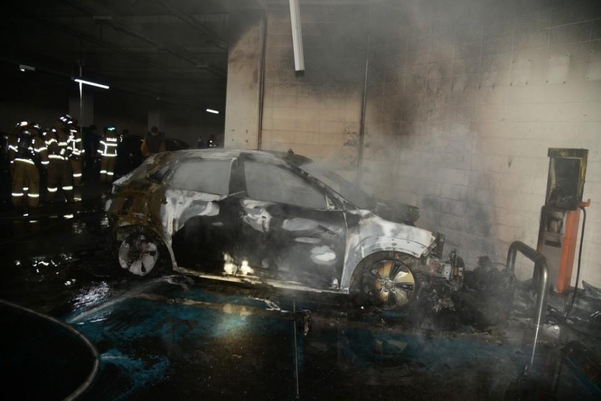Input 2020.12.28 10:25
According to the Ministry of Land, Infrastructure and Transport and the Korea Transportation Safety Authority on the 28th, the number of electric vehicles registered as of November this year was 13,1923 units, which increased by about 12 times compared to the end of 2016 (10,855 units). Accordingly, reports of electric vehicle defects are increasing. The number of electric vehicle defect reports filed at the automobile recall center was 276 from January to November this year, up 46 times compared to 2016 (6 cases).

It is pointed out as a limitation that the irradiation equipment and personnel are mainly composed of internal combustion engine vehicles. In fact, it is known that the lack of equipment has an effect on the delay in the investigation of defects related to Hyundai Motor’s Kona electric vehicle fire.
Related equipment such as an explosion-proof laboratory is required to find out the cause of the battery fire, but the Automobile Safety Research Institute is not equipped with such facilities, so the experiment must be conducted at an external facility.
In order to meet the demand for defect inspection due to the expansion of the spread of eco-friendly cars, the government is building an eco-friendly automobile parts certification center in Gwangju with a total project cost of 39 billion won. Construction is expected to be completed next October.
In the parts certification center, a battery specialty building equipped with explosion-proof facilities will be built, allowing even actual vehicle testing. However, even if the parts certification center operates from the second half of next year, securing manpower remains a task.
According to the Corporation, there are currently 38 personnel involved in manufacturing defect investigations at the Automobile Safety Research Institute, of which 29 are majoring in mechanical and automotive engineering. There are 4 electrical and electronic majors and 5 others.
